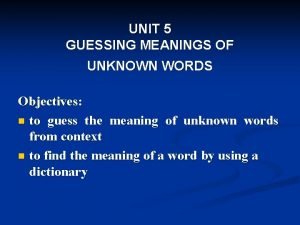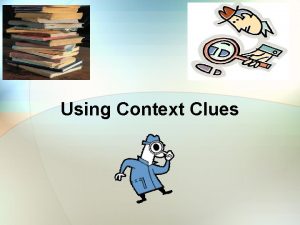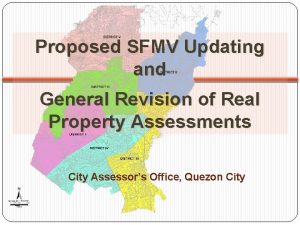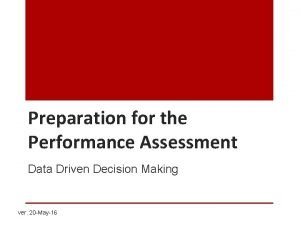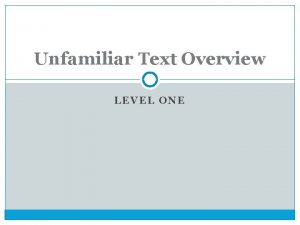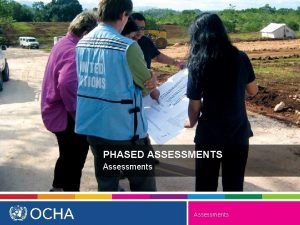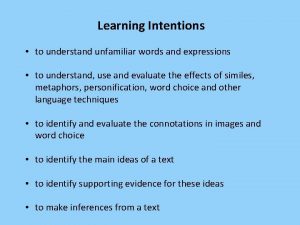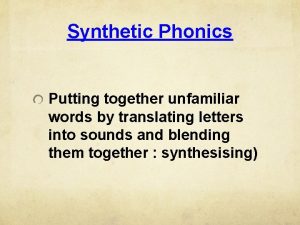Unfamiliar Assessments What are unfamiliar assessments Why do









- Slides: 9

Unfamiliar Assessments • What are unfamiliar assessments? Why do we need them? • How are we as an English department at South Nottinghamshire Academy preparing students for unfamiliar assessments? • What do we learn from unfamiliar assessments?

What are unfamiliar assessment and why do we need them? • Unfamiliar assessments or questions require students to apply their knowledge, understanding and skills to an unfamiliar context. • This type of question regularly appears on GCSE exams for all subjects. • Regular exposure to this type of question in their Key Stage Three assessments will help prepare the students for GCSE. It will make them much more confident when tackling this type of question.

Example question: • Geography: Justify why coral reefs and coastal areas should be protected. Students who have looked at sustainability in connection to rainforests should be able to demonstrate their understanding of sustainability Students who have looked at sustainability in connection to coral reefs and conservation in an unrelated ecosystem. and coastal areas should be able to demonstrate their understanding of sustainability and conservation in an unrelated ecosystem

How are we preparing students for unfamiliar assessments? • Frequent exposure to unfamiliar questions will mean that the students won’t panic. The questions may at first appear to be about things they haven’t learnt but the question will give them everything they need to answer it when combined with their knowledge and understanding from their lessons. • Students should understand, by the time they are in Year 11, how to read the question carefully and think about how the context is similar to something they have already done. Students will look for clues in the question that suggest how they can use what they already know to explain an unfamiliar context.

Year 7 English Writing Exam 2020 Name _________ Teacher____________ Time allowed: 45 minutes Target grade: Final grade: KS 3 English: To prepare the students for a writing assessment in Y 11 to describe an image which they haven’t seen before we assess them in Y 7 and 8 in a similar way. We teach the skills of writing to describe and then give them an unseen image and ask them to apply the skills we have looked at to that image. It is a formal assessment and would have some of the details they would expect to see on their GCSE paper, for example, a front cover.

• English: Spend 10 minutes planning. Write in full sentences. Check through your work at the end. Task: Your school wants to display some creative writing. Describe an old house as suggested by this picture: You may wish to use the boxes to help you plan and create ideas: Before they start writing they are guided to plan their work and proof read. They are taught to split the picture into sections to make the task more focused and manageable. This won’t happen at GCSE but we expect them to spilt the image up and because they do this frequently in KS 3 they do it naturally at GCSE.

The assessment criteria is on the front cover. Teachers highlight the As we mark the assessments criteria as the student meets we highlight where the it. students have met the criteria. What went well: Even better if: The student then complete They then use the grid and WWW/EBI. This is based on our comments to reflect on the highlighted criteria and what they have written. our comments at the end of the assessment.

The students then complete DIRT marking on a section that the teacher wants them to improve.

What do we learn from unfamiliar assessments? It improves teaching and learning because both the students and teachers respond to what we find. Regular exposure to this type of question in their Key Stage three assessments will help prepare the students for GCSE. The student should improve in confidence and therefore motivation.


